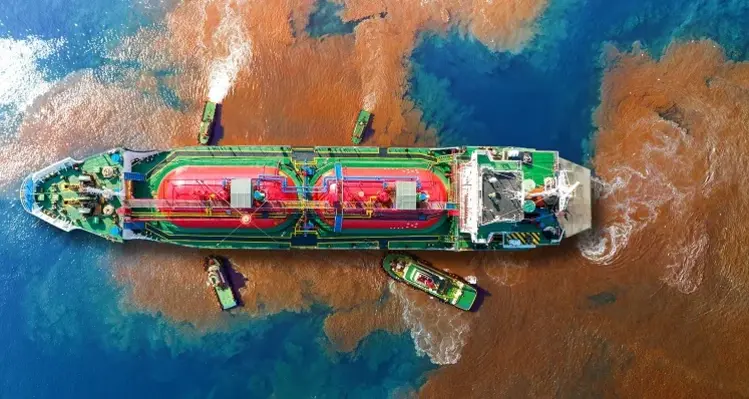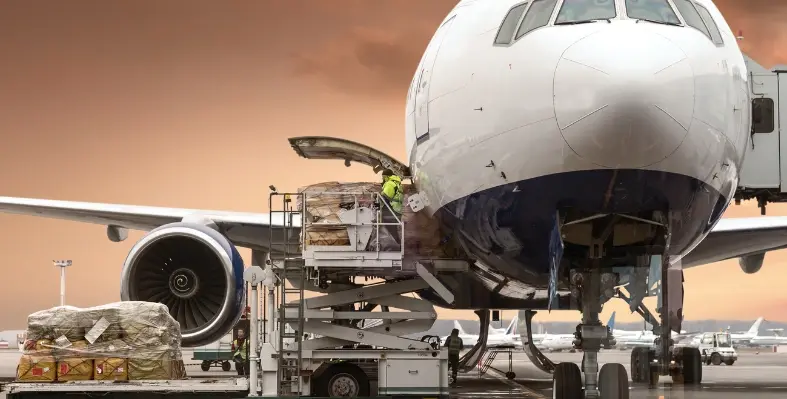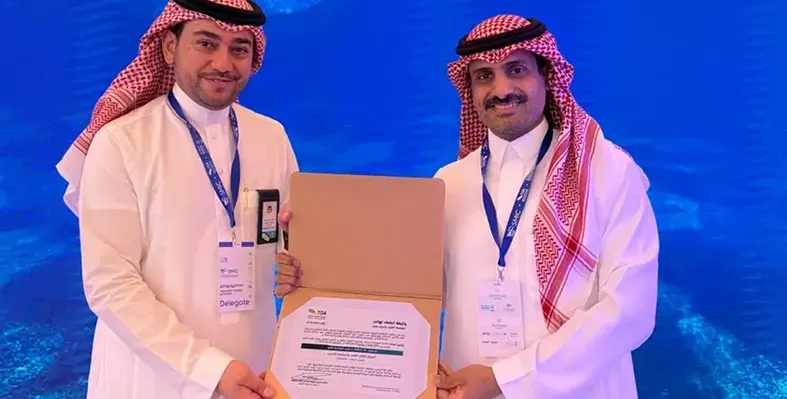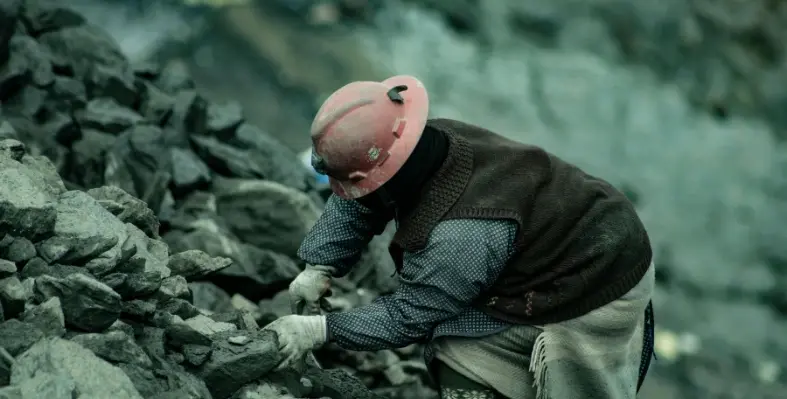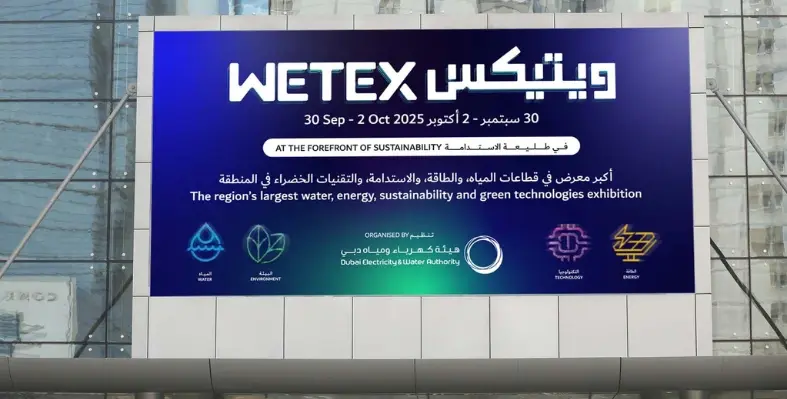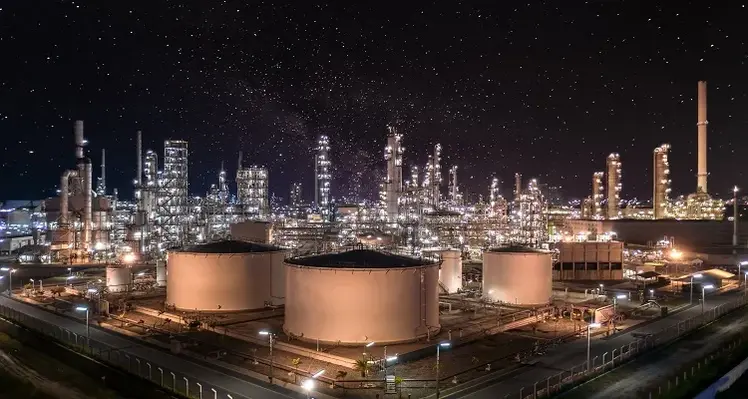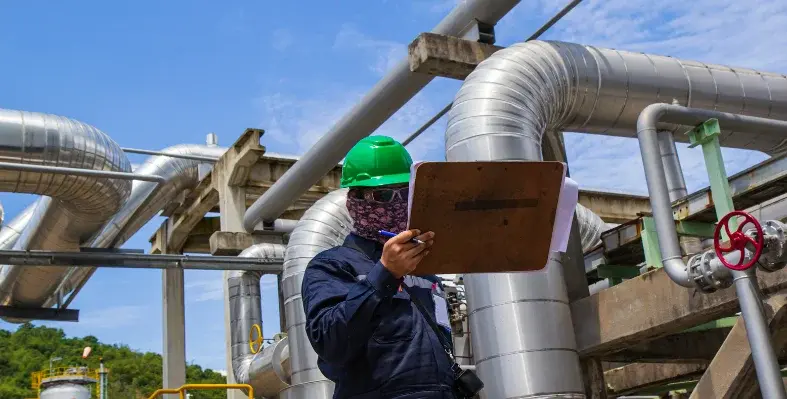Regional Coverage
Regional Coverage
- Details
- Louise Waters
- North America
- Topic: ESG
- Region: North America
- Date: 17 September 2025
- Year: 2025
To mark the USA’s National Preparedness Month, held in September every year to raise awareness about the importance of preparing for disasters and emergencies, the Bureau of Safety and Environmental Enforcement (BSEE) has highlighted the work of its Oil Spill Preparedness Division (OSPD)
The OPSD safeguards America's offshore energy infrastructure while protecting coastal waters and marine environments from the devastating impacts of oil spills. BSEE works closely with federal agencies, state partners, industry, and environmental organisations to ensure a unified national response framework to safeguard people, the environment, and the economy.
Three pillars of protection
BSEE implements its preparedness program through three interdependent roles which together form a comprehensive defense system:
1. Preparedness Verification – reviewing and approving spill response plans, and ensuring operators maintain the people, equipment, and processes to carry them out.
2. Oil Spill Response Research – advancing technologies and tactics to meet evolving offshore energy risks.
3. Ohmsett Testing and Training Facility –a wave and test tank for oil spill research, training, and equipment evaluation.
BSEE conducts rigorous training programs and equipment inspections, as well as Government-Initiated Unannounced Exercises (GIUEs), which require offshore operators to stop what they're doing and shift immediately into crisis mode, deploying personnel, equipment, and processes to tackle a hypothetical spill. These exercises are run in partnership with the U.S. Coast Guard, the Pipeline and Hazardous Materials Safety Administration (PHMSA), and state governments, helping BSEE to identify gaps in order to be fully prepared for a real incident.
Spill risks and technical challenges are evolving as US energy development pushes into new environments, such as the Arctic, the Atlantic, and higher-pressure formations, as well as new offshore renewables like wind and wave energy. BSEE invests in research and development which takes into account
into these evolving areas.
Eric Miller, deputy assistant director for OSPD, explains, "The technologies and data produced from robust government R&D inform regulatory updates, improve contingency plans, enhance response tools, and support safe and environmentally sustainable operations." This R&D not only reduces spill impacts but also spurs innovation, lowers risks for private research, and strengthens the broader energy economy.
Through constant planning, training, testing, and research, the division ensures that America's offshore energy sector is not only compliant but also capable.
Miller says, "It's vital for industry and the government to be ready to respond to an oil spill immediately. That's how we keep ecosystems healthy, communities strong and energy production stable."
- Details
- Matthew Hayhoe
- Europe
- Topic: HSE
- Region: Europe
- Date: 16 September 2025
- Year: 2025
The OSH Barometer, an online dashboard which collates the EU's Occupational Safety and Health (OSH) key health and safety data, has integrated a section spotlighting the digital risks of digitalisation at work
Pulling from data in the OSH Pulse survey and Eurostat from all EU member states, the OSH has created graphs about digitalisation's influence on autonomy and work pace & load.
Aside from digitalisation, charts centring around economic profile, work accidents, OSH statistics, working conditions, workforce profile and more are accessible. Other data sources include Eurofound and the European Survey of Enterprises on New and Emerging Risks (ESENER).
The platform's data visualisation tools collate data from as far back as 2010, displaying findings on both an EU-wide and national level.
- Details
- Sania Aziz
- Middle East
- Date: 15 September, 2025
- Year: 2025
The US$1mn Human Energy Health and Wellbeing Award has opened for submissions, recognising outstanding achievements in advancing workforce health and wellbeing in the global energy sector.
Presented by Response Plus Holding PJSC, the Middle East’s leading pre-hospital care and emergency medical services provider, and Burjeel Holdings, a major super-specialty healthcare group in MENA, the award is supported by Prometheus Medical International, a UK-based defence medicine training company.
Organisations worldwide operating in the energy sector are invited to apply before the 30 September 2025 deadline. The initiative is closely aligned with the UAE’s National Strategy for Wellbeing 2031 and the ‘We the UAE 2031’ vision, which aims to position the country as a global leader in quality of life by promoting healthy lifestyles, mental wellness, and positive workplace cultures.
The award will honour one organisation demonstrating the most innovative and measurable impact on workforce wellbeing, with particular emphasis on scalable solutions and inclusive participation, including from small and medium-sized enterprises.
The inaugural winner will be announced in November during ADIPEC 2025, further highlighting the UAE’s role as a global hub for energy innovation and sustainable development.
For participation and submission guidelines, organisations can visit the Human Energy Health and Wellbeing Award website.
Dr Rohil Raghavan, CEO of Response Plus Holding PJSC, said, “The Human Energy Awards are more than a recognition platform. They are a catalyst for change. By aligning with the UAE’s national agenda, we are reinforcing the international importance of health and wellbeing as strategic imperatives for economic resilience and global competitiveness.”
Steven Wines, CEO of Prometheus Medical International and Head of the Award Steering Committee, added, “The US$1mn Human Energy Award is designed to recognise and inspire organisations who think differently about health and wellbeing. In line with its commitment to transparency, credibility, and global relevance, the Award has announced a distinguished international panel of jury. We want to encourage innovative solutions that make a tangible difference to people across the Energy sector.”
- Details
- Sania Aziz
- Middle East
- Date: 12 September, 2025
- Year: 2025
The UAE has achieved a score of 98.86% in the International Civil Aviation Organization’s (ICAO) Universal Safety Oversight Audit Programme, placing it among the world’s top performers in aviation safety, according to a new report from the General Civil Aviation Authority (GCAA).
The GCAA credited this result to strong regulatory oversight, significant investment in human capital, the adoption of advanced technologies, and alignment with global best practices. The findings were shared in a Wam news agency report, underscoring the UAE’s determination to position its aviation sector at the forefront of international safety standards.
As part of its broader efforts to document and share progress, the authority has launched a new series of analytical reports titled A Closer Look: Civil Aviation in the UAE. The most recent edition, Building One of the World’s Safest Skies, highlights milestones in aviation safety and outlines the challenges and opportunities that lie ahead.
At the core of these achievements is the UAE’s National Aviation Safety Plan (2023–2026). Implemented under the State Safety Programme and aligned with ICAO’s Global Safety Plan, it focuses on reducing operational risks, strengthening oversight, and embedding a safety-first culture across the sector. In 2024 alone, the GCAA carried out more than 900 safety oversight activities, including inspections, licensing, infrastructure checks, and airspace reviews.
Technology has been a major enabler of progress. The authority has rolled out an AI-powered, risk-based oversight system that provides real-time risk dashboards, automated audit prioritisation, and operator self-assessment portals. This system enhances efficiency and regulatory reach without increasing staff numbers, reflecting the UAE’s We the UAE 2031 vision of combining innovation with effective governance.
Other notable initiatives include the Voluntary Reporting System (VORSY), which encourages pilots and operators to report potential hazards, and the Communicable Disease Management Protocol (CAR-CDMP), developed in collaboration with the Ministry of Health and Prevention. This protocol—recognised by both ICAO and the World Health Organization—sets new standards for preventing and managing disease transmission within aviation operations.
The UAE has also assumed a leadership role on the global stage by hosting and organising several high-profile aviation gatherings. These have included the ICAO Conference on Aviation & Alternative Fuels (CAAF/3) in 2023, the ICAO RASG-MID meetings in 2024, the ICAO Global Implementation Support Symposium in 2025, and the Global Sustainable Aviation Market (GSAM) 2025, alongside its annual UAE Aviation Safety Conference.
The GCAA emphasised that safety in the UAE is not treated as a procedural requirement, but as the foundation of aviation operations. It underpins passenger trust, ensures the continuity of air travel, and safeguards lives. The authority stressed that these principles drive every initiative undertaken in the sector, reinforcing the UAE’s position as one of the safest and most trusted aviation hubs in the world.
- Details
- Louise Waters
- Middle East
- Topic: Training
- Region: Middle East
- Date: 11 September 2025
- Year: 2025
3t, a leading provider of safety-critical training and blended learning solutions for high-hazard industries, has received accreditation by Saudi Arabia's Transport General Authority (TGA) enabling it to run its maritime training programmes at its Dammam training centre
The accreditation means that 3t’s maritime training meets internationally recognised standards, ensuring Saudi Arabia’s maritime workforce is equipped with world-class skills, safety protocols, and operational readiness. It underlines 3t’s commitment to supporting the Kingdom’s Vision 2030 goals, particularly in workforce localisation and the development of safety-critical capabilities.
“We are extremely proud to receive TGA accreditation,” said Hani Sagr, managing director MENA at 3t. “This recognition affirms the exceptional quality of our training programmes and our strategic commitment to Saudi Arabia’s maritime future. It enables us to deliver industry-aligned training that supports local talent development and meets the evolving needs of our clients and partners across the region.”
Dr. Atiyah Alatiyah, director of Maritime Accreditation and Qualification at the TGA added, “The Transport General Authority has accredited 3t’s maritime training centre in Saudi Arabia for delivery of basic STCW courses. This recognition reflects our commitment to raising safety and operational standards across the Kingdom. By endorsing high-quality, internationally aligned training providers, we are helping to build a skilled, future-ready workforce that supports Saudi Arabia’s Vision 2030 goals and strengthens the Kingdom’s position as a global maritime leader.”
This achievement complements 3t’s wider strategic initiatives in the Kingdom, including the recent rebranding of its GTSC training centre in Dammam and the launch of a pioneering programme aimed at empowering women in Saudi Arabia’s energy sector.
- Details
- Sania Aziz
- North America
- Date: 10 September, 2025
- Year: 2025
The National Institute for Occupational Safety and Health (NIOSH) is offering free and confidential black lung disease screenings throughout September at multiple locations in Ohio and West Virginia.
Six new sites have been added this month, including Ohio University in Zanesville on 15 September, the UMWA Wheeling Office in Wheeling on 16 September, the Municipal Building in Woodsfield on 17 September, the Volunteer Fire Department in Hopedale on 18 September, Bass Pro Shop in Triadelphia on 19 September, and Price Cutter in Mannington on 23 September.
All current and former coal miners, whether working underground, on the surface, or under contract, are encouraged to participate.
The screenings provide early detection of black lung disease, a preventable yet serious respiratory condition caused by inhaling coal mine dust.
Each screening takes roughly 30 minutes and includes a work history and respiratory questionnaire, chest X-ray, blood pressure check, and breathing test.
Participants will receive a confidential report of their results within eight to ten weeks.
While walk-ins are welcome, appointments are recommended to ensure timely service.
These mobile screenings reinforce NIOSH’s commitment to preventing work-related illnesses and promoting better occupational health outcomes:
-
Zanesville, OH – Ohio University, Zanesville (15 September, 9 AM–4:30 PM)
-
Wheeling, WV – UMWA Wheeling Office (16 September, 9 AM–5:30 PM)
-
Woodsfield, OH – Municipal Building (17 September, 9 AM–4:30 PM)
-
Hopedale, OH – Volunteer Fire Department (18 September, 8 AM–3:30 PM)
-
Triadelphia, WV – Bass Pro Shop (19 September, 8 AM–5 PM)
-
Mannington, WV – Price Cutter (23 September, 8 AM–3:30 PM)
- Details
- Sania Aziz
- Middle East
- Date: 9 September, 2025
- Year: 2025
Health and safety will be a central theme at WETEX 2025, reflecting Dubai Electricity and Water Authority’s (DEWA) commitment to promoting global standards of workplace well-being.
Hosted at Za’abeel Hall 6 across the three-day exhibition, the dedicated Health & Safety Hub offers an extensive programme designed to raise awareness, share best practices, and explore the latest innovations in occupational health and safety management.
Running from 30 September to 2 October 2025, the sessions will provide a platform for industry leaders, safety practitioners, and policymakers to address key aspects of workplace health. Discussions will span occupational health and safety standards, emergency preparedness, workplace well-being, stress management, and resilience building. This comprehensive agenda ensures that delegates gain both practical and strategic insights into safeguarding workers in high-risk industries such as energy, water, construction, and manufacturing.
The brochure emphasises WETEX’s goal of aligning with international benchmarks in health and safety, while also tailoring solutions to the region’s evolving industrial and environmental context. By focusing on prevention, preparedness, and mental health alongside physical safety, the Health & Safety Hub represents a progressive approach to risk management.
Health and safety will also be integrated into other areas of the event programme. On the second day of the Supplier Relationship Management (SRM) agenda, DEWA will deliver a dedicated session on “Health and Safety Overview”. This engagement underlines the authority’s proactive role in ensuring that suppliers and contractors maintain compliance with its rigorous safety framework. The session will highlight best practices for safe operations, while also exploring how DEWA collaborates with its partners to build safer supply chains.
The inclusion of well-being, stress management, and resilience highlights a broader recognition that workplace safety goes beyond compliance. WETEX 2025 will showcase strategies that support not only accident prevention but also workforce sustainability and productivity. By providing a dedicated platform, the event ensures that health and safety remain integral to the conversation about energy transition, sustainability, and innovation.
Through its Health & Safety Hub and supporting sessions, WETEX 2025 reinforces the importance of embedding safety at every level of organisational practice. Visitors can expect actionable insights, exposure to global standards, and opportunities to engage with experts committed to shaping safer, healthier, and more resilient workplaces across the region.
- Details
- Louise Waters
- North America
- Topic: Industrial
- Region: North America
- Date: 8 September 2025
- Year: 2025
Blackline Safety’s EXO 8 portable area monitor has won seven awards this year, making it one of the most recognised health and safety innovations in the industry
The EXO 8 with gamma detection is a next-generation connected area monitor that advances gas detection and early hazard identification for companies and emergency responders. It launched in September 2024 and combines gas and gamma detection in a single connected unit — a capability that’s critical in high-hazard sectors such as oil and gas, mining, decommissioning, emergency response, and even public safety.
Most recently, the product was recognised in the 2025 Occupational Health & Safety New Product of the Year Awards in the categories of Emergency Response & Preparedness and Industrial Hygiene: Gas Monitors/Instrumentation. These Awards, now in their 15th year, celebrate the most impactful innovations in workplace safety. The program highlights manufacturers whose products demonstrate exceptional advancements in design and functionality, with a proven ability to enhance worker protection and overall safety outcomes.
Other awards this year include the internationally renowned Red Dot Design Award, the Preventica Paris Innovation Award and three OH&S Industrial Hygiene Awards.
“EXO 8 continues to set the bar for innovation in area monitoring,” said Cody Slater, CEO and chair, Blackline Safety, a global leading in connected safety technology. “Being recognised across multiple award programs underscores the monitor’s real-world impact and validates our mission to ensure that every worker gets home safely, no matter what hazards they face.”
"EXO 8 with gamma detection has an even wider application beyond industrial use,” said Chris Johnson, deputy chief for the Westchester County Department of Emergency Services in New York State. “It allows hazmat teams to use the device for public safety as part of event protection. It will also keep our people more protected because we can detect more gases."
EXO 8 has already been deployed at a high-profile awards show and during a large public gathering for a renowned religious leader, and security teams for global sporting events are also considering it.
- Details
- Louise Waters
- North America
- Topic: ESG
- Region: North America
- Date: 5 September 2025
- Year: 2025
SLB’s Methane LiDAR Camera has been approved by the U.S. Environmental Protection Agency (EPA) as an alternative test method (ATM) for methane detection, enabling it to be used as a standalone methane detection solution
This eliminates the need for labour-intensive traditional methods such as Optical Gas Imaging (OGI) surveys.
The SLB Methane LiDAR Camera is an autonomous measurement tool with component-level spatial resolution capabilities that clearly distinguish between fugitive leaks and permitted emissions, without requiring secondary measurements.
“Advanced technology solutions are crucial to address the industry’s emissions of methane — a potent greenhouse gas (GHG) with a near-term warming impact up to 80 times that of CO2,” said Ravi Peddibhotla, emissions business manager, SLB.
“Unlike other EPA-approved technologies, the Methane Lidar Camera's spatial resolution allows it to identify emissions sources precisely, preventing false alarms from permitted methane vents. This will enable our U.S. customers to improve their compliance and more efficiently mitigate fugitive emissions from their operations.”
SLB’s Methane LiDAR Camera operates effectively in diverse conditions. Unlike OGI cameras, it is not affected by the temperature difference between the gas and the surrounding environment — a crucial factor for accurate detection. The camera features built-in laser imaging technology which visualises and quantifies emission rates, duration, location, persistence and timing. Operators can access measurements and images remotely via a digital platform, facilitating efficient management of Leak Detection and Repair (LDAR) activities and reporting.
To date, 100 LiDAR Cameras have been deployed by SLB’s customers across four continents.
According to Momentick’s 2024 Methane Emissions Report, 68% of global methane emissions stem from upstream facilities. However they are relatively easy to tackle. The International Energy Agency (IEA) estimates that over 75% of the methane emissions in the oil and gas sector could be reduced today using existing technologies. There is a high level of commitment in the industry to reducing methane emissions, with more than 50 companies, representing almost 45% of global oil production, signed up to the COP28 Oil & Gas Decarbonization Charter (OGDC) which includes a commitment to reduce methane emissions to near zero by 2030. The majority of signatories are on track to meet its goals, according to a progress report.
- Details
- Matthew Hayhoe
- North America
- Topic: HSE
- Region: North America
- Date: 4 September 2025
- Year: 2025
Two strategic partnerships with MEJA Construction hope to instil a stronger attitude towards health and safety on two projects in Henry and Clayton counties in Georgia
The construction projects include the demolition of two school gymnasiums and the construction of their replacements, and the construction of a premises encompassing a kitchen & cafeteria, gymnasium, media centre, classrooms and collaboration spaces.
OSHA will lead training around injury prevention and hazard exposure to workers set to take part in the projects, assist contractors in establishing health and safety management systems and conducting inspections, and monitor potential chemical risks.
The Georgia Institute of Technology On-site Safety and Health Consultation will also be involved in the partnership and projects in a stakeholder capacity.
OSHA's Strategic Partnership Program (OSPP) has been estimated to protect two million workers thus far.
- Details
- Matthew Hayhoe
- Middle East
- Topic: HSE
- Region: Middle East
- Date: 3 September 2025
- Year: 2025
Reports have confirmed that the Saudi Water Partnership Company's Al-Rayes-Rabigh pipeline project has surpassed two million safe work hours
Upon completion, currently estimated in Q2 2026, the 150km-long pipeline will process up to half a million cubic metres of water daily.
TradeArabia has reported comments from Khaled Al-Quraishi, the chief executive of the Saudi Water Partnership Company. "The project has achieved more than two million safe work hours... with work in full swing, the project is on track for commercial operations by the end of the second quarter of 2026."
The project is the first pipeline connecting water desalination sources in Makkah and Madinah, estimated to cost around 2.5 billion Saudi Riyals. Finance was secured in March 2024.
Announcing the financial close of the project last year, Al-Quraishi said, "Rayis-Rabigh IWTP consortium managed to successfully complete the financial closure... despite the floating global market conditions.
"This demonstrates SWPC’s commitment to fully support investment projects and to increase private sector participation by giving local and foreign investors the opportunity to participate in the implementation of these projects. As a result, these projects will create job opportunities and support local content to complement the strategic objectives of Saudi Arabia’s Vision 2030."
- Details
- Louise Waters
- Middle East
- Topic: HSE
- Region: Middle East
- Date: 2 September 2025
- Year: 2025
Newly-released figures from Saudi Arabia’s General Authority for Statistics (GASTAT) show an improving picture in workplace health and safety in the Kingdom
According to the Health and Safety at Workplace Statistics publication 2024, 95% of workers have coverage for basic healthcare, 39% of workers received training in health and safety measures, 40.4% have access to a dedicated occupational health and safety department at their workplace, and 38.8% have an occupational health and safety representative at their workplace. 32.2% of workers received periodic medical examinations provided at their workplace.
The rate of work injuries among workers aged 15 and above reached 245.7 non-fatal injuries and 1.1 fatal injuries per 100,000 workers, excluding road traffic injuries. The non-fatal injuries rate has shown a significant improvement in recent years, dropping by 30% compared with 416 per 100,000 reported a few years ago. Regarding risks at workplace, the results highlighted that 5.4% of workers were required to work on hazardous machines, 2.1% were required to deal with chemicals, and 1% are exposed to heavy metals.
The results also showed that over the past 12 months, 79.5% of workers reported that they had not experienced any work-related health problems. The most common work-related health problems were "work-related stress" at 2.1%, followed by "eye and vision problems" at 2%.
The estimates of Health and Safety at Workplace Statistics are based on self-reported data from participants through field visits conducted in the 2024 National Health Survey (NHS), except for the work-related injury rate, which was calculated from the register-based data from the National Council for Occupational Safety and Health, and the 2024 population estimates from the General Authority for Statistics.
Updated systems and regulations
In line with Vision 2030 objectives aiming to minimise workplace injuries, diseases, and fatalities across all sectors, the systems and regulations related to occupational safety and health have been developed and updated in recent years, aligned with the needs of the Saudi labour market and international standards.
Key legislative measures passed in the last couple of years have included quotas for HSE practitioners for a certain numbers of workers, along with Saudization quotas for HSE practitioners; and regulations prohibiting outdoor work in the middle of the day, in common with other Gulf states. Initiatives launched by the National Council for Occupational Safety and Health (NCOSH) have included the creation of a national platform for reporting and investigating work-related accidents, injuries, and occupational diseases to identify root causes of accidents, establish appropriates rules to reduce them and prevent their recurrence. It is also conducting training and awareness initiatives, establishing OSH research and development centres, developing a system to verify OSH practitioners, improving the knowledge and capabilities of OSH practitioners to implement mandatory health and safety regulations, and running programmes to enhance companies’ compliance with OSH requirements and regulate high-risk occupations.
These policies and initiatives are achieving results, with a significant reduction in the Kingdom's work-related injury rate.
At the Global Occupational Safety and Health Conference held in Riyadh in May, H.E. Eng. Ahmed bin Sulaiman Al-Rajhi, Saudi Arabia’s Minister of Human Resources and Social Development and chairman of the National Council for Occupational Safety and Health, announced landmark initiatives aimed at enhancing the occupational safety and health system in both Saudi Arabia and across the region. These included the launch of the National Institute for Occupational Safety and Health, the creation of an Occupational Safety and Health Standards Guide in collaboration with the General Organization for Social Insurance, as well as the introduction of the National Incentive Program for Compliance and Excellence, among others.
